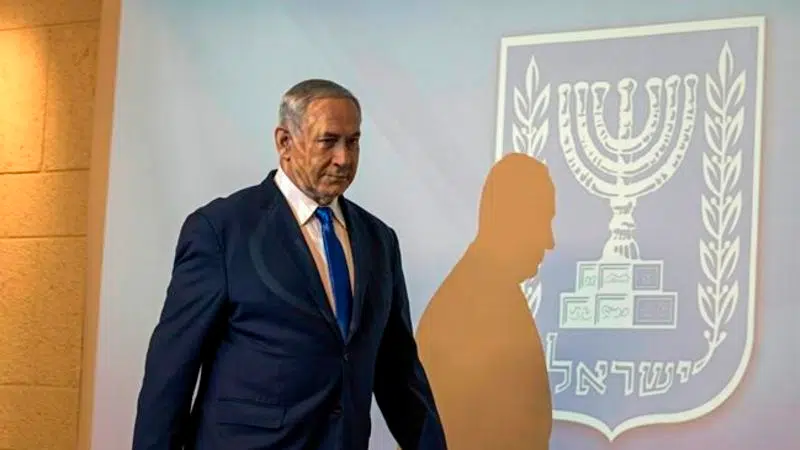
Israeli leader claims to find new Iranian nuke site
JERUSALEM — Israel’s prime minister on Monday unveiled what he said was a previously undisclosed Iranian nuclear weapons site, further escalating a showdown between the two enemy countries.
Benjamin Netanyahu’s announcement came as the U.N. nuclear watchdog held a meeting in Vienna, where he’s hoping the agency will take tougher action against Iran. It also came in the final stages of Israeli national elections, drawing criticism from opponents that the sudden press conference was a campaign stunt.
Speaking to reporters, Netanyahu said Israel discovered the facility, located in the central Iranian town of Abadeh, by using information gathered in a trove of documents Israeli agents stole from an Iranian warehouse and made public early last year.
“Iran conducted experiments to develop nuclear weapons,” Netanyahu said.

